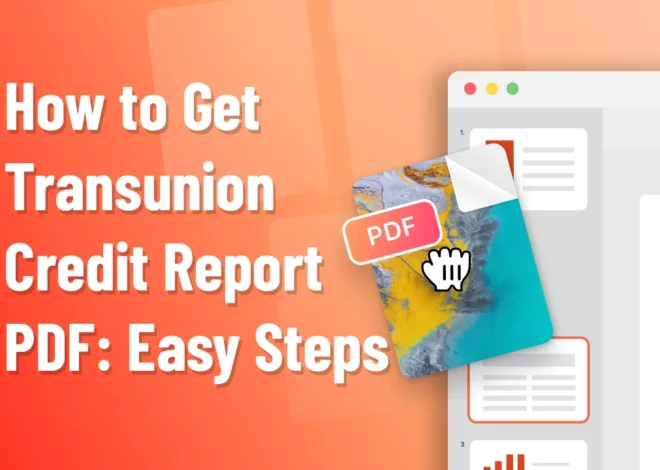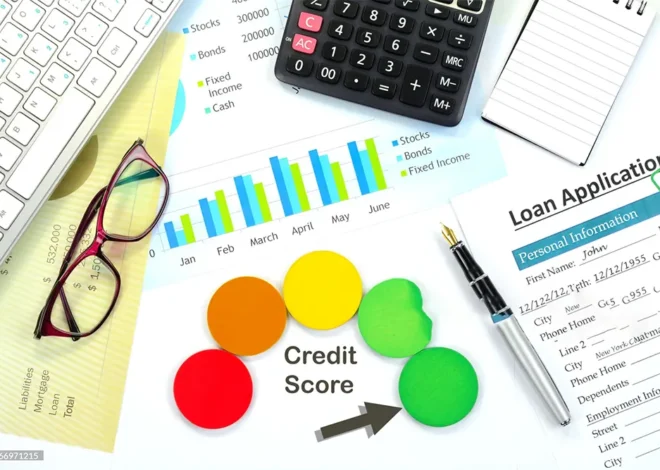
How Does Intuit Credit Karma Improve Credit Score?
Maintaining a good credit score is critical for financial health. When you’re applying for a mortgage, taking out an auto loan, or out there looking to get better interest rates on your credit cards, it is your credit score that decides the deal. You’ll either pay less—or even qualify at all for what ‘s being offered. So, how does Intuit Credit Karma improve credit score? Credit Karma promises to use its top credit assessment tool and service user base, to help users improve their credit scores.
Free credit monitoring gives you up-to-the-minute information on your own status and what lenders think as well. And by using highly targeted recommendations users could discover how they might more easily improve their risk profile or increase their standing with lenders. But how does it work and can a free service like Credit Karma truly change the world for people’s credit ratings? Let’s take a look at how Intuit Credit Karma improves credit scores and find out how you can achieve your financial goals thanks to it.
How Does Intuit Credit Karma Improve Credit Score?
Intuit, a financial technology company most widely known for popular tools like TurboTax and QuickBooks, offers Credit Karma at no cost to you. Credit Karma provides a service that allows you to view your credit scores and reports from two of the three top credit bureaus, Trans Union and Equifax. You can get weekly updates completely free of charge which help keep users informed when their status Bell changed in that week. To learn more, you can read our article on Mastering Your Free TransUnion Credit Score: Expert Tips.
Yet there’s much more to Credit Karma than simply checking your score. The platform works hard to help you raise your Credit score by providing analysis of your credit habits–including suggestions for making changes over time that will bring positive results. It also offers helpful tips on how best to take actions that can really produce higher scores. To learn more, check out our article on Fast Credit Repair in 30 Days: Proven Strategies for Quick Results.
How Does Credit Karma Get Your Credit Score?
Serving up your credit information, Credit Karma retrieves everything from two huge U. S. credit bureaus, TransUnion and Equifax. These credit bureaus is going to produce a credit report that reflects all of your borrowing and repayment behavior. From this report, they calculate your FICO score–but if you’re dealing with a Vantage Score model rather than the traditional formula, will depend on data. Credit Karma’s computers are usually set for Vantage Score–which takes into account a handful of key factors that we will come back to later in the chapter.
- Payment History (40%): Have you paid your bills on time?
- Age and Type of Credit (21%): How old is your credit history, and what types of credit accounts do you have (credit cards, loans, mortgages, etc.)?
- Credit Utilization (20%): How much of your available credit are you currently using?
- Total Balances (11%): The total amount you owe across all accounts.
- Recent Credit Behavior (5%): Have you recently applied for new credit?
- Available Credit (3%): How much credit is still available for you to use?
With access to this data, Credit Karma helps you understand what factors are affecting your credit score the most and offers suggestions on how to improve. o understand more about these factors, check out our article on Why Does Higher Credit Utilization Decrease Your Credit Score?
Key Ways Intuit Credit Karma Helps Improve Credit Score
1. Real-Time Credit Monitoring
Real-time credit monitoring is one of the main features of Credit Karma. This is crucial because it affords you the opportunity to see any changes right away in your credit report. If your score has pertly declined from previous, you will at once be able to investigate and rectify whatever is going wrong for you at present. Conversely, say you are trying to improve your credit score–by means such as paying off debt or reducing credit card utilization. This way, in near real-time you will be able to see the benefits of your efforts.
With real-time monitoring, you can also stay one step ahead of potential fraud. For example, if someone tries to open a new account in your name, Credit Karma will alert you to the inquiry and give you an opportunity to take action before substantial harm is done your creditworthiness. To learn how to protect your credit score from these common risks, read our article on How Long Does a Hard Inquiry Affect Your Credit Score?.
2. Personalized Financial Recommendations
Credit Karma also proposes customized suggestions that are based on your specific financial data. Among these suggestions will be credit cards with much lower rates of interest than otherwise available, or even a personal loan or mortgage loan perfectly tipped to the customer’s present credit rating. The key is that each offer is tailored specifically to you so it can better reflect your risk profile and financial customs.
Consider if, for instance, a high rate of credit utilization–something noted by Credit Karma–may be properly addressed through a balance transfer card with lower interest rates that enables borrowers manage their debt more wisely and sooner pay it off. In this way, by putting these AI advisories to good use you’ll be making this type of vital financial decision with a direct impact on your credit score.
3. Insights Into Credit Utilization
Your credit utilization ratio is a major factor that influences your credit score: at any given time, it measures how much of your available credit is currently being used. As a result, if you would like to guarantee a higher score, strive for a lower Percentage. For example, let’s say that you possess plastic with an aggregate credit limit of $10,000. You need to not bother with balances that exceed more than one-third this limit–in other words, try to ensure all the time greater than 30% of what you have borrowed on your account(s).
Credit Karma will show you your credit utilization summary and issue a warning before approaching the 30% line. It also informs this targeted outreach effort by providing these insights on what action or accountability points you need most of all to take in order achieve a better balance sheet, whether combined change is in it for you annual raise followed by another five years with no substantial raises. For a deeper dive into credit utilization, check out our article Why Does Higher Credit Utilization Decrease Your Credit Score?
4. Customizable Alerts
Moreover, you should know whether the accuracy with which Percentage is calculated on your Credit Report. As a result, if you would like to guarantee a higher score, strive for a lower Percentage. For instance, suppose you have credit cards with an overall limit of $10,000. Do not let debts exceed 30 percent of this limit; that means don’t take out too much for any one time cumulatively or at all beyond a point in time say 30 days.
Credit Karma will tell you the balance in use on your credit cards. Before the 30% line is reached, it also tries to help steer this effort. So too does he leverage the presence of such regular reporting right down here on those making this recommendation or addressing staff members implementing points gathered in part from statements I shared about how they want things recorded.
5. Credit Score Simulator
A unique feature of Credit Karma is the Credit Score Simulator, which enables potential calculations as how different financial decisions would affect your score. You could simulate scenarios like paying off a credit card, applying for a new loan, or increasing your credit limit. This way of looking at things helps you imagine how the things you do now will affect your credit score in future years. Use this tool to lay out a path for improvement.
The simulator is very useful for when you’re planning a major purchase. If you are half-seriously considering getting a mortgage or car loan in the not-too-distant future, you can use the simulator to predict how these actions will influence your score, then make corrections now-before you apply, that is-to ensure your credit is as clean as possible.
Why Is Your Credit Score Important?
Before we get down in the weeds about what good Credit Karma does for you, you ‘ll first need to understand why creditworthiness is so important. Your credit score is a snapshot of your financial health. It is an indicator that has been universally recognized as important for the past fifteen years. Lenders, landlords, and sometimes even employers look at your credit score before deciding whether to lend you money or rent your apartment with. These are some of key areas in which a better credit score can help you into the future:
- Lower interest rates: Higher scores often qualify for better interest rates, saving you money over time.
- Loan approval: A good credit score can increase your chances of being approved for a loan or mortgage.
- Higher credit limits: Lenders are more likely to offer you larger credit limits if you have a strong credit profile.
- Rent approval: Landlords may check your credit before approving a lease.
By using a tool like Credit Karma to monitor and improve your credit score, you can unlock financial opportunities that would otherwise be out of reach.
Conclusion:
Credit Karma from Intuit, is much more than a free service to check your credit score. It’s a seamless experience that gives you virtual control over your financial health. With Credit Score Simulator, real-time monitoring for changes in your score and personalized financial recommendations, Credit Karma allows users an easy way to improve their credit standing.
Credit Karma urges that you monitor your credit utilization, install alerts and make decisions on the Score Simulator for keeping your credit score slowly rising over time. Credit Karma can provide an invaluable tool in achieving higher credit. Whether it’s to apply for a loan and live your more modest dream; It could bring you a better mortgage rate; Or even help solidly lay the foundation of your financial future, Credit Karma will be welcome company at each one of these junctures.











